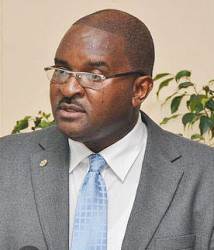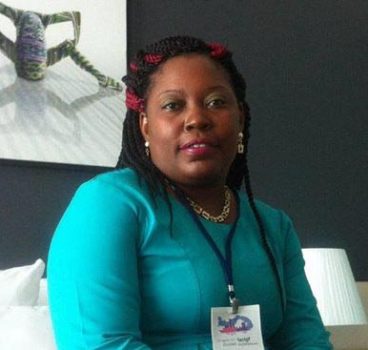The Internet Society
The Internet Society is a collection of cooperating, interconnected networks that promote and support international collaboration. It seeks to foster the voluntary interconnection of computer networks into a global research and development communications and information infrastructure.
The Society also aims to offer support to organizations involved in the use, operation, and evolution of the Internet by providing support for fora at which technical and operational issues can be ventilated. Additionally, it provides means through which interested audiences can be kept abreast of important developments pertaining to the development of the internet, its function, use, operation, and the interests of its constituents.
Mindful as we are of staying abreast of developments in the discipline of internet technology and its functions as a communication tool, Guyana has established an internet society, The Internet Society of Guyana as a non-governmental organization (NGO), its parent organization being the Internet Society.

An open and free internet
The Guyana Chapter is volunteer-based organization focused on furthering the cause of realizing an open and free Internet through the organization and execution of a range of activities that include educational events, community programmes, public policy programmes and networking events.
Membership
Applicants for membership of the Internet Society Guyana Chapter must already have been a global member of Internet Society and a citizen of Guyana. You can register to be a Global member on the Internet Society website.
Internet Society, Guyana Chapter will work with all sectors of the Guyana society to reach decisions about the Internet that conform to our core values. We will also be seeking to address social, economic, and policy issues that inhibit people from sharing their voices.

Issues
Among the issues that will be addressed by the Guyana Society are access, children and the Internet, Domain Name System Security Extension (DNSSEC) encryption, human rights, innovation, intellectual property, Internet Exchange Points (IXPs), internet governance, internet privacy and internet regulation.
The Society’s Education and Leadership programmes will include preparing a new generation to succeed as Internet technology, policy, and business leaders. This initiative will seek to provide the next generation of leaders with a wide range of skills in a variety of disciplines as well as the ability and experience to work with people at all levels of society.
Next Generation Leaders
The Next Generation Leaders (NGL) is a training and professional development programme that prepares the world’s next generation of leaders to address challenges in Internet technology, business, policy, and education. To apply to the programme you must be between the ages of 20 and 40 years old. The programme comprises a blend of interactive, online, and participatory course work designed to help develop professional leadership potential. The NGL programme expands on participants’ existing knowledge and advances their leadership skills within a supportive environment.
Newsletter
The Internet Society will produce a newsletter on a regular basis and hold an annual meeting to which all members and other interested parties will be invited. The topics of the annual meeting will vary, but are expected to focus on current research in networking, Internet functionality and growth, and other interests of the Society constituency. Membership dues will vary according to class of membership. The amounts of dues and the basis on which they are set will be determined by the Board of Trustees.
The Society will seek to, among other things, support the technical evolution of the Internet as a research and education infrastructure and encourage the involvement of the academic, scientific, and engineering communities in the evolution of the Internet. It will also seek to educate the academic and scientific communities and the public as a whole on issues relating to the technology as well as the use and application of the Internet. Further, the Society will seek to promote the scientific and educational applications of Internet technology for the benefit of schools and other institutions at all grade levels, industry, and the public at large and provide a forum for exploration of new Internet applications and foster collaboration among organizations in their operation and use of the Internet.
Support for Internet Technical Evolution
The Internet Activities Board (IAB), the coordinating committee for Internet design, engineering and management – comprising an independent committee of researchers and professionals with a technical interest in the health and evolution of the Internet system – has been concerned with the development and evolution of architectures supporting the use of multiple protocols in a networked environment. Accordingly, the Internet Society will incorporate the IAB and its functions into the operation of the Internet Society. The Society will use Internet Engineering and Research Task Forces to stimulate networking research and facilitate the evolution of the TCP/IP protocol suite and the integration of new protocol suites (e.g., OSI) into the Internet architecture. The Internet Society will work with parties and organizations interested in fostering improvement in the utility of the Internet for its constituent users.
Meetings and Conferences
The Internet Society will convene an annual meeting and will organize and facilitate workshops and symposia, jointly with other organizations where appropriate, on specific topics of interest to members. The annual meeting will address issues of global and regional importance to the evolution and growth of the Internet.
Information and Infrastructure Services
The Internet Society will publish an Internet Newsletter providing members with information about the international activities of Internet constituents. The Society will also provide assistance to and support for organizations responsible for maintaining the databases crucial to Internet functioning. Further, the Society will assist in the development of educational, advisory, and informative materials of use to members. The Society will also refer members to appropriate parties involved in operating the various parts of the Internet where they may be helpful with specific questions. Where possible, the Society would seek to provide access to its information on-line, but would also offer hard copy and, perhaps eventually, CD-ROM-based information resources.




